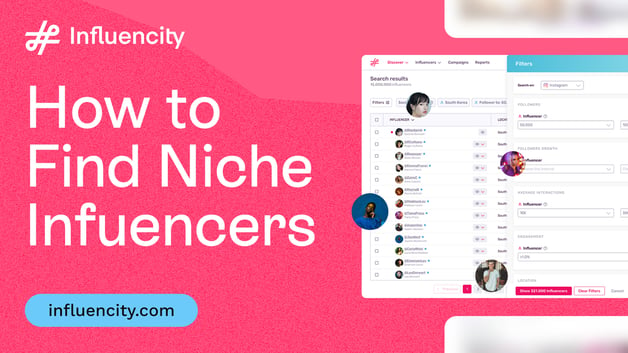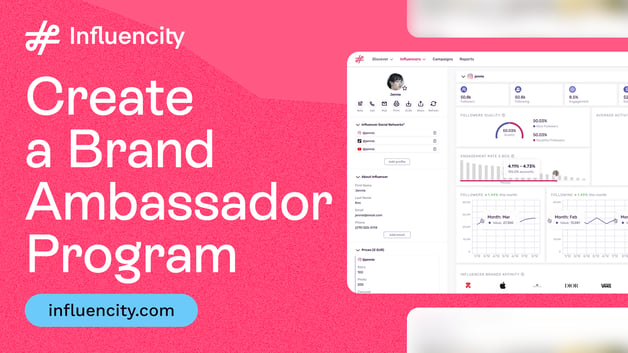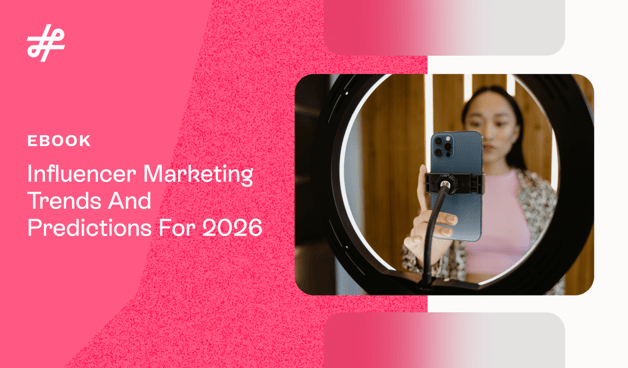Social Responsibility and Ethics in Influencer Marketing: The Role and Impact of Content Creators
In influencer marketing, the boundary between legal and ethical standards can often be indistinct. While regulations specify what is allowed, ethics guide us on what is right and fair for society. This distinction is increasingly important, especially in a context where content creators exert significant influence over their followers, underscoring the need for social responsibility and ethics in influencer marketing.
Recognizing the influential role of media and influencers in shaping public opinion highlights the importance of ethical considerations in influencer marketing. Influencers, akin to the bards of yesteryear, have the capacity to either enrich or degrade societal views. Therefore, adhering to ethical standards is not merely about complying with the law but about ensuring the well-being of society through social responsibility and ethics in influencer marketing.
In this post you can expect to gain insight into the fundamental differences between legal and ethical standards in influencer marketing, get practical advice with actionable steps to avoid common ethical pitfalls and ensure responsible content creation to enhance brand reputation.
A Brief History of Media Influence
Media is an unstoppable force of influence that emerges from society and impacts it in return. When media professionals produce content, they are essentially either fostering or harming society through each creative decision.
Throughout the history of storytelling, remarkably talented individuals have shaped public opinions and sensibilities. For instance, during the Renaissance, playwrights like William Shakespeare influenced societal views with plays that addressed complex human themes and political issues. In the 20th century, journalists like Edward R. Murrow used television to shape public opinion on critical matters such as McCarthyism.

In more contemporary times, filmmakers like Steven Spielberg have used cinema to address historical events and social issues, influencing public perceptions and conversations. Additionally, modern influencers like Greta Thunberg have harnessed the power of social media to raise awareness and mobilize global movements around climate change.
These characters aimed to influence public opinion and craft a narrative that would outlive them, with storytelling being among their most potent tools. This tradition persists globally, albeit in more subtle and complex forms.
The Distinction Between Legality and Ethics
A common question in our field is whether something is legal, as many aspects are not covered by current legislation. However, what is legal does not always align with what is ethical.
Legislation is created by individuals who sometimes lack deep knowledge of all societal aspects. Ethics, on the other hand, is based on the values and principles instilled in us by our parents or adopted from society at large. Thus, what is legal may not necessarily be ethical.
Ethical Pitfalls in Influencer Marketing
Ethical pitfalls are mistakes that can be made when creating content, and these mistakes can have serious consequences if not avoided. In the context of influencer marketing, these pitfalls can range from plagiarizing another person’s work to misrepresenting facts and figures. They can also include passing off someone else’s work as your own or failing to give credit where it is due. Ethical pitfalls relate to any behavior that breaches accepted standards of conduct in content creation.
For instance, an influencer might plagiarize content from another creator without proper attribution. Even if this was not intentional, it can significantly harm both the influencer's and the brand’s reputation. Legal repercussions can include being sued for copyright infringement, leading to costly legal fees and fines. Furthermore, if an influencer creates discriminatory or exploitative content, they risk damaging their own reputation as well as that of the brand they represent, potentially resulting in job loss and a tarnished public image.

Two real-life examples are Spanish influencer, @Dulceida, and Logan Paul, worldwide famous Youtuber.
In 2017, YouTuber Logan Paul faced severe criticism after posting a video that showed the body of a suicide victim in Japan's Aokigahara Forest. The video was widely condemned for its insensitivity and lack of respect for the deceased and their family. Logan Paul apologized and faced significant professional setbacks, including suspension of his YouTube ad revenue. This incident underscored the necessity of ethical decision-making and sensitivity in content creation.
A year later, in 2018, Dulceida faced backlash when she posted an image of herself posing with locals in Africa, which many perceived as exploitative and insensitive. Critics accused her of perpetuating harmful stereotypes and using the image for personal gain without understanding the cultural implications. This incident highlighted the importance of cultural sensitivity and respecting the communities influencers engage with.
These examples illustrate how ethical missteps can lead to public outrage and damage both personal and brand reputations. Influencers must navigate these pitfalls carefully to maintain their credibility and foster a positive impact through their platforms.
Why Should We Care About Avoiding Ethical Pitfalls?
Content creators have a moral responsibility to produce accurate and responsible content that follows industry-standard ethics. The consequences of failing to avoid these ethical pitfalls can be dire — for both the creator and the organization or brand they represent.
For example, if an influencer endorses a product without disclosing a paid partnership, it may be legal in some jurisdictions but is certainly unethical. This lack of transparency can lead to a loss of trust among their audience, ultimately harming the influencer’s credibility and the brand’s reputation.
Similarly, spreading false information about a product's benefits can mislead consumers and result in backlash, both legally and ethically. Brands and influencers must ensure that their content is truthful and that they are transparent about their endorsements to maintain integrity and trustworthiness.
How to Avoid Ethical Pitfalls in Content Marketing
To ensure your content is produced ethically and responsibly, follow these key steps:
1. Maintain Alignment with Core Values
Ensure that all content reflects the core values of your brand or business. Misleading content that contradicts these values can lead to consumer backlash and damage to your reputation.
2. Respect Copyrights
Double-check that any ideas or phrases taken from other sources are properly credited. Use images that are either self-created or obtained from reliable, royalty-free sources to avoid potential copyright issues.
3. Understand Your Audience
Knowing your audience helps avoid creating content that is irrelevant or inappropriate. Tailor your content to meet their needs and interests, and always consider their sensitivities to prevent alienating them and damaging your reputation.
4. Avoid Plagiarism
Stealing someone else's work is a serious ethical breach. Always credit original sources and consider using plagiarism detection software to ensure originality.
5. Adopt Best Practices
Make sure that all team members are aware of and follow industry best practices when creating content. This includes writers, editors, and reviewers. Best practice guidelines help produce ethically responsible content and avoid potential pitfalls.
The Role Content Creators in Ethical Influencer Marketing
Now that we've established the distinction and importance of ethics and legality, it's time to discuss the role and impact of content creators in this context.
As influential figures in digital marketing, content creators have the power to shape public opinion, drive engagement, and set trends. Understanding their ethical responsibilities and the potential consequences of their actions is essential.

Content Creators' Responsibilities
Content creators wield significant influence that extends beyond individual followers to shape public discourse. This influence comes with a profound responsibility to present information fairly, avoiding undue bias, and considering the potential impact of their words on a broader scale. Acknowledging this responsibility is a key step towards ethical content creation.
1. Social Media and Ethical Content Sharing
The pervasive influence of social media amplifies both the reach and responsibility of content creators. Ethical content sharing on social media involves a commitment to fact-checking, verifying sources, and ensuring that shared content aligns with the creator’s values. Creators must be mindful of the potential impact of their shared content on diverse audiences and strive to contribute positively to the digital discourse.
2. Content Sensationalism
While sensational content often garners rapid attention, ethical concerns arise when sensationalism sacrifices accuracy and objectivity. Influencers must resist the temptation to exaggerate or manipulate information merely for engagement. Striking the right balance involves presenting compelling narratives without compromising truthfulness and avoiding clickbait tactics.
3. The Impact of Content on Mental Health
Addressing mental health topics ethically requires a nuanced understanding of the potential impact on readers. Ethical content creation involves providing accurate, empathetic narratives that promote awareness without exploiting sensitive topics.
4. Diversity and Inclusivity in Content Creation
Ethical content creation embraces diversity and inclusivity, representing a broad range of perspectives and experiences. Creators should avoid stereotypes, approach cultural topics with respect, and actively seek diverse voices.
5. Data Privacy and User Consent
Ethical handling of user data is crucial. Content creators must prioritize obtaining informed consent before collecting and utilizing user data for personalization purposes. Responsible data practices safeguard user privacy and establish a foundation of trust.
6. Ethics in Sponsored Content and Advertising
Sponsored content and advertising introduce unique ethical challenges, demanding transparency about financial partnerships and clear distinctions between promotional and organic material. Full disclosure preserves audience trust and ensures that promotional activities are conducted ethically.

Consider the case of Liza Koshy (@lizakoshy), a well-known YouTuber and social media influencer. Liza has built her brand on authenticity, transparency, and positive engagement. She frequently discloses sponsored content clearly, ensuring her followers are aware of paid partnerships. Additionally, she uses her platform to promote social causes, such as mental health awareness and racial equality, providing accurate information and encouraging her audience to engage in meaningful conversations.
Educating Content Creators on Ethics
Establishing clear ethical guidelines and providing training programs for content creators is key. These initiatives ensure that creators are equipped with the knowledge and tools to navigate ethical challenges and prioritize responsible content creation.
Here are some tips, ideas, and examples of how to effectively promote ethics while collaborating with content creators:
1. Develop Comprehensive Ethical Guidelines
- Create a detailed document outlining ethical standards and expectations for content creation.
- Include sections on plagiarism, copyright laws, transparency in sponsored content, data privacy, and respectful communication.
- Regularly update the guidelines to reflect new challenges and changes in the industry.
2. Provide Continuous Support and Resources
- Establish a support system where creators can seek advice on ethical issues.
- Create a resource library with articles, videos, and toolkits on ethical content creation.
- Encourage peer discussions and mentorship programs to foster a community of ethical creators.
3. Encourage Transparency and Accountability
- Promote a culture of transparency by encouraging creators to disclose all sponsored content and partnerships.
- Implement accountability measures, such as regular audits of content and feedback mechanisms.
4. Highlight the Importance of Cultural Sensitivity and Inclusivity
- Educate creators on the importance of cultural sensitivity and inclusivity in content creation.
- Provide guidelines on avoiding stereotypes and respecting diverse perspectives.
- Encourage creators to seek input from diverse voices when crafting content.
Emphasizing these ethical considerations allows influencers and brands to create content that adheres to legal requirements and aligns with moral principles, thereby cultivating a reliable and responsible digital marketing environment.
Tags:









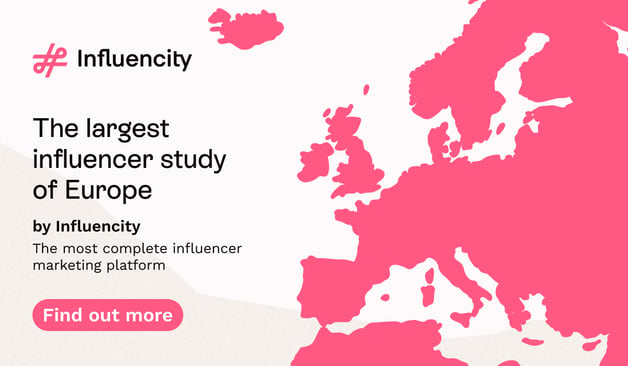

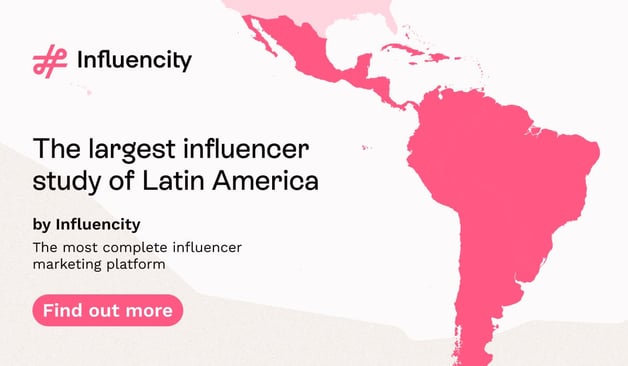







%20and%20How%20Can%20They%20Benefit%20Your%20Brand%20article.jpg?length=628&name=What%20Are%20Key%20Opinion%20Leaders%20(KOL)%20and%20How%20Can%20They%20Benefit%20Your%20Brand%20article.jpg)
